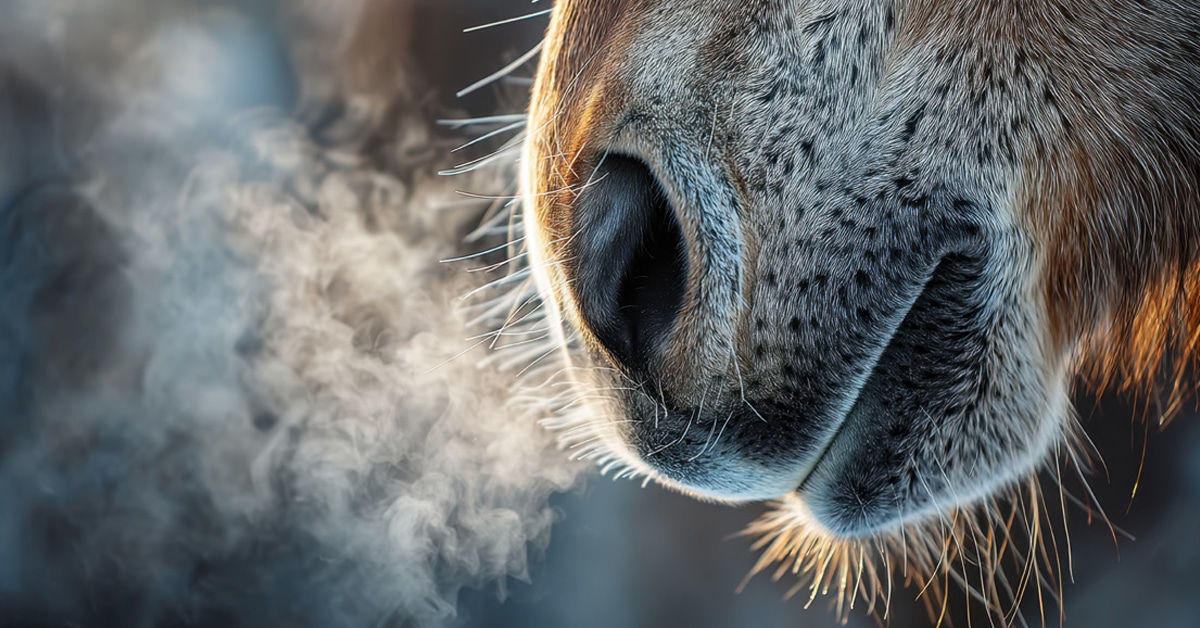Vitamins are essential dietary nutrients required for metabolism. They can be broken down into two categories: water-soluble and fat-soluble. Water-soluble vitamins are dissolved in water and therefore can be absorbed and easily excreted via urine. However, because of this, they are not stored in the body and the horse needs daily intakes of these vitamins or else deficiencies can occur. Fat-soluble vitamins are absorbed with fat and can be stored in the body within the fat stores. For this reason, and also because they are not as easily excreted, their quantity can build up to toxic levels. On the other hand, it may take a period of lack of intake for deficiency symptoms to arise.
Water-soluble Vitamins
The water-soluble vitamins include vitamins C (ascorbic acid), and the B complex vitamins (B1=thiamine, B2 = riboflavin, B3 = niacin, B5 = panthothenic acid, B6 = pyridoxin, B7: biotin, B9 = folate, B12 = cobalamin). Vitamin C is an antioxidant which can prevent or slow damage to cells caused by free radicals, which are unstable molecules the body produces as a reaction to environmental and other pressures. While not actually considered a vitamin necessary for horses because they have the ability to synthesize their own vitamin C in their liver (unlike humans), one study showed lower vitamin C status in older horses, so many equine feeds, particularly senior mixes, have vitamin C added. Because it is water-soluble, if you were to feed it to a horse that did not need it, it would be expelled in the urine.
The B vitamins are involved in various reactions of energy metabolism and are also not really required in the equine diet because they are synthesized by the microbial organisms in the horse’s digestive tract where they can then be absorbed. They are produced in sufficient amounts that vitamin B deficiencies are not documented in horses unless a vitamin B antagonist is present in the diet (such as raw soybeans or raw eggs, which should not normally be fed!). If a horse is on oral antibiotic therapy, their digestive microbial population may be affected and vitamin B supplementation may be warranted. There is no research to show that added vitamin B supplements are effective to improve metabolism, performance, or overall health, except vitamin B7 (biotin) which has shown to improve hoof quality when fed in supplemental amounts.
Fat-soluble Vitamins
The fat-soluble vitamins include vitamin A, D, E and K. Vitamin A is involved in growth, the immune system, and vision. The horse naturally consumes beta-carotene, which is plentiful in pasture grasses and it is converted to vitamin A as required. Beta-carotene is also found in carrots, and overfeeding them will not cause vitamin A toxicity. However, horse feeds typically have vitamin A added to them and formulation errors or over-supplementation of vitamin A could result in toxicity which manifests as bone fragility, abnormal bone growth, or itchy, peeling skin. In a case of vitamin A deficiency, the first symptom is night blindness, which may occur if horses are only fed hay that has been stored long enough for any present beta-carotene to be depleted.
Vitamin D is crucial for calcium absorption and metabolism. It can be synthesized by the body in the skin upon exposure to UV-rays from sunlight (about 15 minutes daily is sufficient) and is also found in fresh or sun-cured forages that have not been stored too long. In Canada, it is often added to feeds due to the longer winter months and potential for horses to not get sufficient sunlight. Deficiency symptoms, including bone issues such as rickets, may arise when a horse is kept in a stall or is heavily blanketed and does not get proper exposure to sunlight. Toxicity most often arises with feed milling errors where too much vitamin D is added by mistake.
Vitamin E is an important antioxidant found in plentiful amounts in pasture and fresh hay. As with vitamin A, deficiency symptoms are only noted after long-term feeding of stored hay when all body stores of vitamin E may be depleted and the amounts in hay are low. Vitamin E is often incorporated in horse feeds and other supplements. Overfeeding vitamin E does not appear to be as toxic as some other fat-soluble vitamins; however, it may interfere with the absorption and metabolism of other vitamins if over-supplemented.
Vitamin K, essential for blood clotting, is found in leafy forages and is also produced by the microbes in the horse’s digestive tract. Deficiency has only been reported when horses consumed mouldy sweet clover that contains a vitamin K antagonist called dicoumarol.
In summary, vitamins for equines are largely synthesized by the horse (vitamin C and D) or their microbes (B vitamins and K), or are provided for in sufficient amounts with a management style that includes some pasture (vitamins A and E) and sunlight. Because many horses are fed hay only, particularly in the winter, commercial feeds are usually fortified with vitamins A and E, and in Canada also with vitamin D to account for any shortcomings. Supplementation with vitamin C for older horses or biotin for horses with poor hooves may be warranted based on the individual – ask your equine nutritionist.
The Latest









